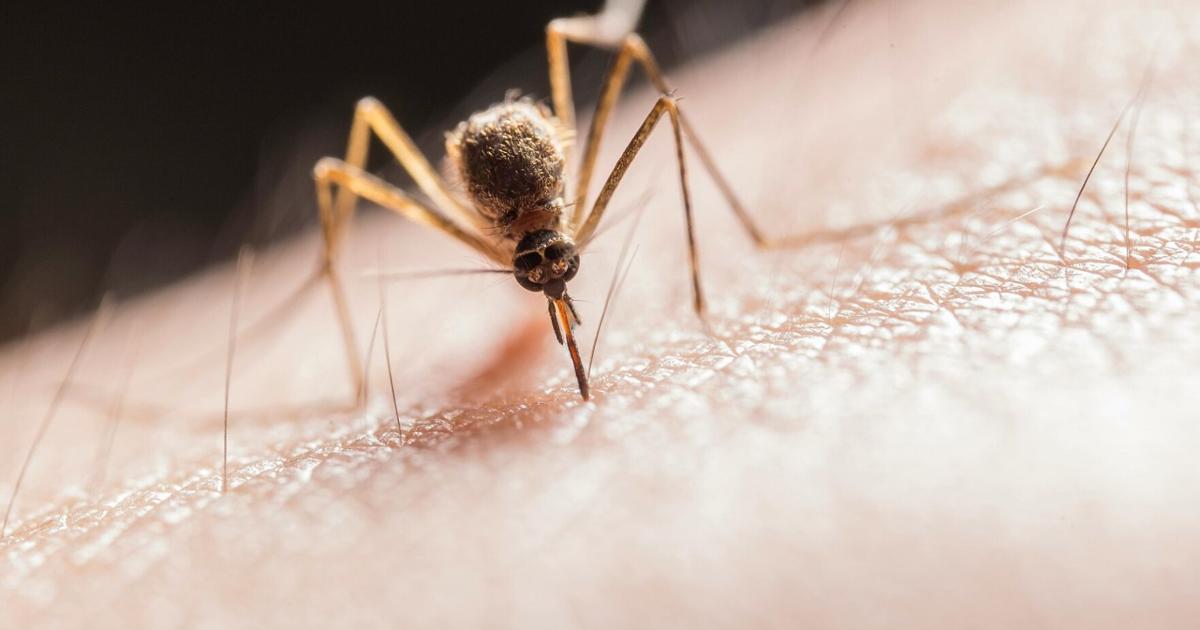A new Lancaster County case of the mosquito-borne West Nile virus was reported last week, bringing the county’s human case tally to five this year.
While the exact dates of infection are not available, the state Department of Environmental Protection reported the most recent case in a weekly report dated Friday. The other four individuals were likely infected in July and August, according to the Pennsylvania Department of Health.
The Lancaster County cases account for five of the 25 human cases that have been reported in Pennsylvania this year, according to the report. In 2024, Lancaster County had a total of five reported human cases and two deaths, and in 2023, it had zero, according to state DEP data.
Primarily an illness of birds, West Nile virus was first found in Pennsylvania in 2000, according to the Pennsylvania Game Commission. The virus is typically transmitted by infected mosquitos. Unlike some other illnesses, it doesn’t commonly spread between people — coughing, sneezing and touch do not transmit West Nile virus, according to the federal Centers for Disease Control and Prevention. West Nile cases usually peak in late August to early September, according to the CDC.
Human cases of West Nile virus in 2025, by countyAdams: 0Berks: 2Chester: 1Cumberland: 2Dauphin: 0Franklin: 0Lancaster: 5Lebanon: 0Perry: 0York: 2Statewide: 25
Source: Pennsylvania Department of Environmental Protection weekly report dated Friday.
Prevention tips
Since there are no licensed vaccines or medications available for West Nile, the CDC says the best way to stay safe is to avoid getting bit. Wearing loose-fitting, long sleeved shirts and pants, using U.S. Environmental Protection Agency-registered bug spray with ingredients like DEET, picaridin or oil of lemon eucalyptus and treating clothes and gear with permethrin can help protect you, as can taking steps to control mosquitos, the CDC says.
On its website, the state DEP encourages residents to remove standing water, which can turn discarded tires, bird baths, containers and even bottle caps into breeding grounds for mosquitos.
Health risks
Most people who catch West Nile virus will experience no symptoms, while about 20% will feel like they have the flu. Less than 1% will experience a more serious version of the disease affecting the central nervous system, according to the CDC. This can cause inflammation of the brain and of the membranes around the brain and spinal cord. About 10% of those who experience this severe form of the illness will die, and permanent symptoms are possible for those who survive.
Age increases the risk of severe illness from West Nile virus. Adults 65 and older are three times as likely to develop neurologic illness compared with those under 65, according to the CDC. Conditions like cancer, diabetes, high blood pressure and kidney disease also put people at higher risk of severe illness, as do weakened immune systems, the CDC says.
West Nile Virus symptoms
Around 80% of people who get West Nile virus will feel fine, but others will experience symptoms ranging from mild to life-threatening. Symptoms typically begin two to six days after infection, but sometimes take as long as 14 days to begin.
Symptoms of mild illness:
FeverHeadacheBody achesJoint painVomitingDiarrheaRashFatigue and weakness lasting for weeks or months
In less than 1% of cases, the virus infects the central nervous system, which can cause inflammation of the brain (encephalitis) and of the membranes around the brain and spinal cord (meningitis). Severe central nervous system illness causes death in about 10% of cases.
Symptoms of severe illness:
High feverHeadacheNeck stiffnessStuporDisorientationComaTremorsConvulsionsMuscle weaklessVision lossNumbnessParalysis
Source: Centers for Disease Control and Prevention
Success! An email has been sent to with a link to confirm list signup.
Error! There was an error processing your request.

